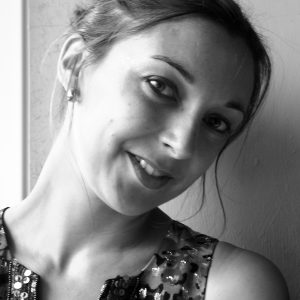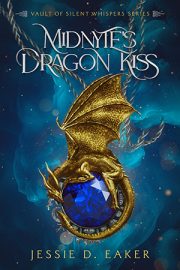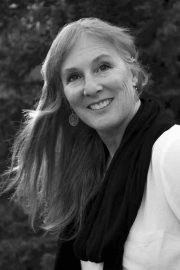Treading on Embers
By Lorraine Wilson
Statistics are easy to quote, but difficult to connect to, don’t you think? It’s easy to say that 20% of people in the UK are disabled, but within publishing we account for only 5%. To say migraines are, according to the World Health Organization, the sixth highest cause of “Years Lost to Disability” worldwide (chronic migraine, my own special joy, is higher). All moderately interesting numbers, yes? But what is it like to live them, especially as a writer?
I find it hard to encapsulate what my daily life is like, and honestly, I actively try not to think about it too often because that way lies heartbreak. But here we go. I have four days of migraine headaches a week, on average, every week, for the last ten years. Add to that the symptomatic phases preceding and following each headache (nausea, vomiting, partial paralysis, neuralgia, fainting, auras, brain fog, exhaustion, and acute sensitivity to light, sound, and touch…the list goes on). All this, as you might imagine, rather impacts my writing life. Funnily enough though, it’s not just about the time lost to the pain, but also the planning around the pain. I co-opted the phrase “treading on eggshells” for this piece, because eggshells on fire is how it feels. Avoiding triggers and meting out energy and medication, readjusting workloads and priorities as my health ebbs and flows. I am constantly weighing whether doing X is worth the pain, the lost time recovering, and the inability to then do Y. Zoom seminar or see my friend for coffee? Attend this event but therefore not be “present” for my daughter for a week afterwards, let alone do any writing?
Disability involves being incredibly organised. I ask for advance notice of events because I must start preparing two weeks before and block out the following week for recovery. I ask for longer editorial deadlines than I need, because working to a tight deadline escalates both migraines and post-deadline crash. I have the fortunate freedom to write during my daughter’s school hours, but I’ve had to learn to plan (and forgive myself) for the days when I cannot look at the screen or think in coherent sentences. The days when my daughter comes home and I have pushed too hard, so am now, just as she wants to talk, broken. It is, bluntly, a constant firewalk just to get words on the page.
But how about transforming those words into a writing career? As you might imagine, there are myriad ways in which disability or chronic illness erects barriers here. We’ve recently learned, blessedly and incontrovertibly, just how exclusionary in-person events are, whether for logistical, financial, or other reasons. I’m lucky—I don’t need access provisions, and I have the option to take time away. But travel makes me ill; socializing, bright lights, noise, long days—it is all a recipe for quite ridiculous levels of pain. The pandemic-led switch to online events opened the publishing world to me almost beyond recognition, and it will both break my heart and harm my career if that progress is reversed. I cannot work outside the home (i.e., “real” work according to some) anymore, so costs are another issue, largely precluding access to events, competitions, editorial support, and courses.
I know I’m not alone there—financial restrictions and other marginalizations are often entwined. But there are more intangible barriers too. Agents and editors respond much, much less to Twitter pitches that mention disability, and d/Deaf or disabled identities are often omitted from calls for under-represented writers. Then there are insidious little burdens like always having to be the one asking for support or leniency, the fear of being seen as “difficult,” and the strangely pervasive belief that if you are marginalized you can only write about your marginalization, so any other forms of story are somehow invalid. Weird, that one, but that’s where we are.
All sounds a bit exhausting, doesn’t it? Like I said, I try not to think about it too much. Endurance is about taking the next step, not looking for the horizon. But I love writing, I love being an author, and I wouldn’t have that if not for the illnesses that forced me out of my career as a research scientist. I love that my own cindered existence has made me a more thoughtful writer, more aware of the dualities between strength and weakness, empowerment and disempowerment. Most of all, I love the community of writers I have found, all supporting one another as we fight both our bodies and the industry to get our stories heard. Change is coming, I think, and when it does it will be because those of us emerging from the margins have walked through fire.
 Having spent many years working as a conservation scientist in remote corners of the world, Lorraine WiIson now lives by the sea in Scotland writing stories influenced by folklore and the wilderness. Her short fiction has appeared in (amongst others) Strange Horizons, Forge Lit, The Mechanics’ Institute Review, and Boudicca Press. Her debut novel, the dystopian thriller This Is Our Undoing, was released in 2021 and has been shortlisted for several prizes. A second novel, The Way The Light Bends, is a dark folkloric tale coming out in August 2022. She runs Rewriting The Margins, a mentorship scheme for marginalized writers, tweets @raine_clouds, and her books can be found at https://linktr.ee/raine_clouds.
Having spent many years working as a conservation scientist in remote corners of the world, Lorraine WiIson now lives by the sea in Scotland writing stories influenced by folklore and the wilderness. Her short fiction has appeared in (amongst others) Strange Horizons, Forge Lit, The Mechanics’ Institute Review, and Boudicca Press. Her debut novel, the dystopian thriller This Is Our Undoing, was released in 2021 and has been shortlisted for several prizes. A second novel, The Way The Light Bends, is a dark folkloric tale coming out in August 2022. She runs Rewriting The Margins, a mentorship scheme for marginalized writers, tweets @raine_clouds, and her books can be found at https://linktr.ee/raine_clouds.


